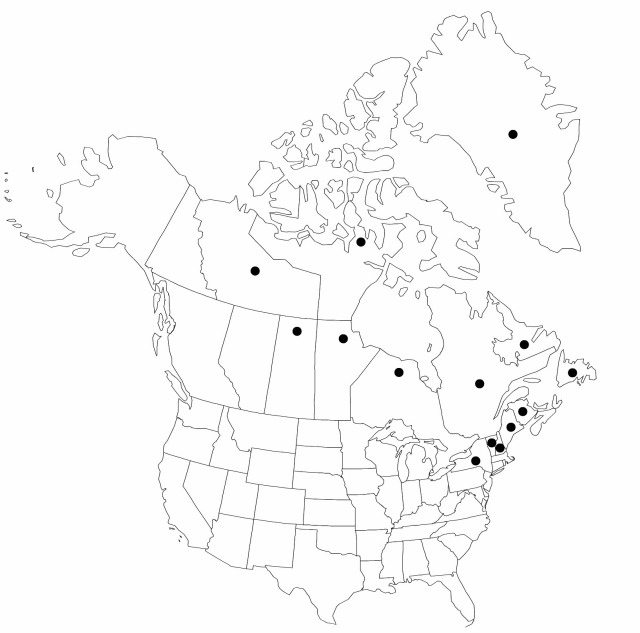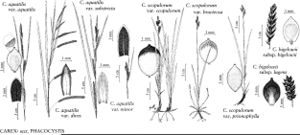Carex bigelowii subsp. bigelowii
Plants not cespitose. Proximal pistillate spike loosely flowered, base often attenuate, less often cuneate. Perigynia green, spotted purple-black on apical 1/2, not uniformly black, 1.8–3.5 × 1.1–2 mm; stipe 0.15–0.45 mm, apex acute, sometimes rounded, minutely papillose. 2n = 68–71.
Phenology: Fruiting Aug–Sep.
Habitat: Dry to moist alpine or arctic tundra
Elevation: 0–2000 m
Distribution

Greenland, Man., Nfld. and Labr., N.B., N.W.T., Nunavut, Ont., Que., Sask., Maine, N.H., N.Y., Vt., Europe.
Discussion
Carex bigelowii subsp. bigelowii is highly variable in height and shape, stipe length, and color of perigynia. The isolated populations at the southeastern extreme of the range (New York and New England) tend to have larger, more apically acute perigynia than in the northern parts of the range. Although usually distinct from the western subsp. lugens, occasional eastern plants are not distinguishable based on morphology.
The ecology of Carex bigelowii subsp. bigelowii has been extensively studied (K. A. Kershaw 1962; T. V. Callaghan 1976; R. W. Fonda and L. C. Bliss 1966). Chromosome numbers reported for subsp. bigelowii are lower than the number reported for subsp. lugens, and indicate that there may be considerable genetic differentiation between these taxa as suggested by Hultén’s hypothesis that these are the two ends of a circumpolar Rassenkreise.
Selected References
None.
